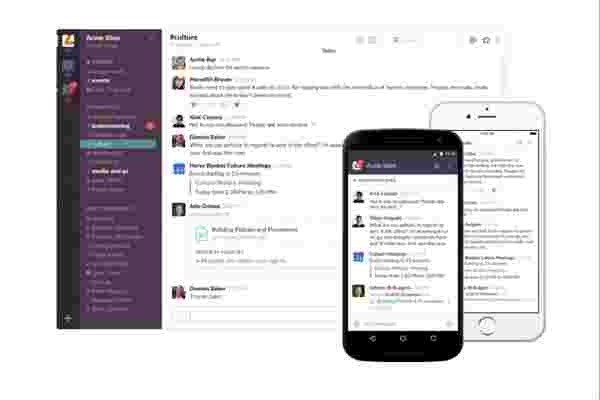Your Business Rises and Falls on Customer Experience

To paraphrase something Steve Jobs once said, you have to start with the customer experience and work backward to the technology if you're looking to sell $8or $10 billion of product a year.
This statement is profound and can be so impactful in all of our businesses, with a few minor tweaks.
Long ago, when I was just starting my first few businesses, I would spend dozens of hours dreaming about the business, how it would operateand how we'd turn a profit. I would plan out marketing and sales, the layout of the building I needed, our hours of operationand everything I needed to start and run this new business -- except the one thing I needed to know most, which was how the customer experience was going to be.
In the past, I didn't plot about how easy a process would be for customers, but rather how efficient it would be for my team or myself. I didn't worry about building a relationship with customers because I thought I was the best at my trade, so of course, they'd come back and do business with me. I didn't put real effort into referrals, because, again, I was the best, so of course, customers would refer others to me. Even my marketing was somewhat focused on me instead of the customer.
If you take a second and look at businesses around you, you'll see this is exactly how virtually all of them operate. Here are a few easy examples.
I recently got a nine-hour window for the cable company to come by and fix a problem with their outside wiring. They don't care about customer experience -- socialism and monopolies will do that to you. The cable company's idea of a good experience is to have the driver call you from a blocked number 20 minutes before they arrive, and if you don't answer or can't make it within the 20 minutes, your appointment has to be rescheduled. Crazy.
58003 You'd literally get better advice from my 11-year-old on running and marketing a business, but that aside, this advice was likely given so the consultant could show a quick and easy win of how much money he saved his new client. Unfortunately, though, when you stop marketing, you may make a little more cash now, but you will ultimately see a swift decline in new customers and a decline in revenue to follow ... dumb.
I could go on, but the bigger question is, in what areas of your business are you not focused on the customer experience, but instead focused on your own needs?
Customer experience also has a massive impact on referrals. If it is difficult to do business with you, then when a customer does refer, they always add in, "This guy is great, but Bertha at the front desk is a nightmare," or "Expect to wait 20 minutes to been seen." When someone gives you a referral and adds a "but" at the end of it, followed by a negative comment, do you think people are going to charge in to do business with you?
The overall customer experience includes every interaction -- from the phones and reception area to the way your office looks, how they are treatedand the results they get. Customer experience and overall satisfaction includes everything in and around your business. If you're not getting the number of referrals you feel you should be, there is a good chance one problem is customer experience. It's likely you have other problems, like relationships and trust, but without a good experience, you'll always be limited on the number of referrals you can get.
If we go back to the Steve Jobs quote I paraphrased at the beginning of the article, he said something else profound. Here's the exact quote:
"The hardest thing is, how does that fit into a cohesive, larger vision that's going to allow you to sell 8 billion dollars -- 10 billion dollars -- of product a year? ... [You've] got to start with the customer experience and work backward for the technology." --Steve Jobs
58003
The video this quote is taken from was filmed in 1997, the first year Steve Jobs was back as CEO of Apple. Steve wasn't thinking small; he wasn't thinking about growing sales five percent -- he wanted to add billions in new sales. Although you and I may have different goals, far too many of us still don't think big enough. We think about adding small percentage increases in revenue -- five percent growth, 10 percent growth. At five percent, you're barely keeping up with inflation and pay raises -- and maybe not even keeping up.
Are you thinking big enough? Are you pushing yourself? Is that new product or service going to allow you to achieve the growth you desire? How will that product or service affect experience? Are you trying to sell something that people feel should be included in your service?
These are the questions I see so few people asking.
Now, I know many people feel that they are big enough, that they don't need to grow more and that they are happy with their income. Great, glad for you, but what happens when the next 2008–2011 rolls around? Nearly everyone takes a hit in a recession.
Now is the time to invest and grow your savings, offerings, relationships, and customers. It is those who invest now, when times are at least average, that will make it through the next storm. 58003 Are you investing in relationships?
Do you have a referral culture? Are customers loyal to you or just the lowest price? Is Amazon going to put you out of business because you're just a commodity? If you're on the wrong end of any of those answers, now is the time to fix it, when things are good.
I believe that it's the questions you ask that determine the answers you get, so I want to close with two questions I hope you'll ponder.
Everyone says that customers are the priority, but when are your actions going to match the redirect?What change are you going to make today to improve customer experience?The choice is ultimately yours.















